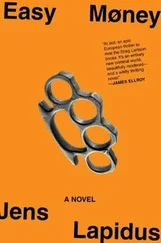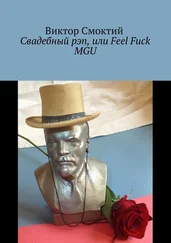Niklas stared at the screen. Tried to shut out the sounds from the neighbors. But he could hear them over the movie.
He raised the volume. Iris screamed. The pimp screamed louder. The volume was unbearable. But it shut out the noise from the fight in the apartment next door. Niklas tried to concentrate. His thoughts came crashing down: Claes murdered, his mother unhappy. Niklas’s childhood neighbors must’ve raised the volume on their TV sets, too. Tried to erase the noise from Mom. From him. From Claes.
But somehow, he could still hear it. He knew things weren’t right over there on the other side of the wall.
The movie was moving toward its climax. The crescendo. The moment of truth. The victory of justice. Travis takes things into his own hands. He passes by the pimp on the street. “Do I know you? How’s Iris? You know Iris?” And the pimp just lies straight to his face. “I don’t know nobody named Iris.”
This couldn’t go on. The volume. The neighbors. Claes. Travis.
He could hear thuds against the wall again. He had to turn the TV off. Couldn’t let what was happening over there happen.
The woman on the other side was weeping. Screaming. Niklas knew what was going on. Everyone knew. But no one did anything.
He strapped the Cold Steel knife behind him, under his jeans. Stepped out of the apartment, into the hallway.
Listened. It was still going on in there. The man yelling. The woman whimpering.
He rang the doorbell.
Silence.
He rang it again.
They said something to each other in voices too low for him to hear.
The peephole grew dark; someone was eyeing him from the other side.
The door opened.
A man. Maybe thirty years old. Stubble. Black shirt. Wide jeans.
“Hi, what do you want?” The guy looked completely calm.
Niklas shoved him hard in the chest. Into the apartment. Closed the door behind him. The guy looked shocked. But snapped out of it faster than expected.
“What the hell are you doing? You stupid fuck.”
Niklas ignored the provocation. He was a pro. A fighting machine.
In a calm voice, he said, “Never hurt your woman again.”
At the same time, he grabbed the back of the guy’s head. Shoved it down. Against his knee. Force from two directions. The knee’s upward power, and both his arms tearing the head down. Until they met.
The guy tumbled into the wall. Spit blood. Teeth. Howled. Cried.
Niklas let fly three fast jabs with full force into the guy’s ribs.
The man collapsed.
Niklas kicked him in the back. The guy shielded his head with his arms. Screamed. Begged for mercy.
Niklas bent down. Pulled his knife out. The tip against the guy’s pulsating throat. It gleamed more beautifully than ever.
“Never do that again.”
The guy sniffled. Said nothing.
“Where is your woman?”
The guy kept sniffling.
“Where is Jamila?”
He really didn’t have to ask.
The neighbor girl stood in the doorway leading to the living room. A fat lip and a bruise over one eye.
In Arabic, Niklas said, “Never let him hurt you again. I’ll come back.”
15

The reliability of people who claim to have witnessed things was ranked. The National Police had their own internal guidelines: a rating system for eyewitness accounts, evaluation criteria for reliability. Really, it was self-evident stuff that just wasn’t formally recognized: what an orderly Swedish small-business owner said held up better in court than what a pot-smoking eighteen-year-old nigger might try to explain. What a regular, working Sven witnessed was always valued higher as evidence than whatever some heroin-rotted disability-check collector claimed. The investigative work had to be focused, which is to say reduced—only prime-minister and foreign-minister assassinations were allocated unlimited resources. The machine-gun method—to shoot at every clue you had in the hopes that you hit something—didn’t work. Society couldn’t waste endless amounts of cash. So, you knew who to listen to. Whose accounts garnered results. Served as good evidence. For a prosecution and for a conviction.
A policeman’s account was always given the highest reliability rating. That’s the kind of account you’d put resources toward following, the kind that held up in court.
The situation now: two policemen had seen the track marks on the unidentified man’s arm. Two policemen could confirm that the cause of death’d not been properly investigated by the forensic pathologist. That an additional autopsy was required. That Adamsson’d stopped them from photographing the corpse, the arm, the marks. Something was wrong. According to the worldview of the court, two policemen didn’t lie.
Still, nothing happened.
Thomas just didn’t get it. It was obvious: Stig Adamsson’d wanted to stop them for some reason. But Adamsson wasn’t just anybody. Thomas actually liked the guy. Everyone knew him: he belonged to the real old school. A man whom Thomas would ordinarily ally himself with, a man who dared to call a spade a spade, who didn’t meddle when something had to get done. In a way, he reminded Thomas of his old man—honest in a tough way—except Adamsson was right wing, politically. Adamsson was a reservist in the army and a shooting fanatic. Warm advocate for tougher caliber, harder methods, fewer weaklings on the force. Well-known opponent of the influx of women and niggers. There were other rumors circulating about Adamsson during the seventies and eighties when he was a part of the Northern District’s feared SWAT team. Drunks grabbed by the team and dumped half-dead in abandoned lots outside the city, junkies picked up for nothing and worked over with wet phone books—to avoid visible fractures and wounds—union cops who were bullied, women in the department who were sexually harassed until they transferred out. That kind of stuff often impressed Thomas. A lot of Adamsson’s kind’d probably been weeded out over the years, but not him—the old guy was too good.
Hägerström almost seemed to take it lightly. He chuckled when Thomas, with mixed feelings, called him the day after the morgue visit. “That old fart Adamsson is going to feel some heat for this. Promise.”
Thomas wanted to know more. To be honest: despite Martin Häger-ström’s background, what he really wanted was for Hägerström to bring him onto the investigation officially.
They talked about different scenarios for a while. Hägerström had theories. “I think it’s probable that the dead guy was an addict. Maybe he was going to break in and rob some stuff or just crash in the basement. Someone followed him down there, or maybe just ran into him by chance, and beat him to death. Afterward, the perpetrator got scared and sliced the guy’s fingertips to make things harder for us.”
Thomas didn’t believe Hägerström’s version for a second.
“That can’t be it. It can’t be a chance encounter. If it was, why all the hush-hush about the track marks? And why would someone go to all that effort for a regular junkie?”
“You might be right.”
“And why did someone slice his fingers and pocket the dentures?”
“Okay, okay. You’re right. The most likely scenario is that someone probably both shot him full of something—drugs, poison, or whatever—and beat him to death. That seems in line with the rest of the way this was executed. Nothing has been left to chance.”
“No, and anyway, the question remains: Why was nothing written about the track marks? Why was my report edited?”
For the first time since Thomas’d gotten to know Martin Hägerström, the man had no ready answer.
Читать дальше













